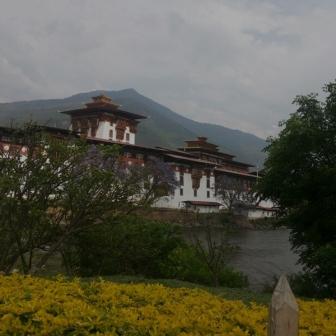
Bhutan: The Knight in Shining Armor in Ecological Conservation
Bhutan is a tiny landlocked and remote kingdom lying cozily in the Eastern Himalayas between India and China. Successive lofty rugged mountains and deep valleys define the terrain of the country. An avid traveler will recall Bhutan for its beautiful mountains, charming monasteries and warm hospitality. It is the only country in the world to retain tantric form of Mahayana Buddhism as its official religion, which has been practiced in the country since 7th century AD and with its underlying principle of respect to all forms of life and treating them as sacred.
It is perhaps this traditional reverence for nature that has delivered Bhutan in the 21st century with an environment still richly intact. Bhutan can proudly boost of a forest cover of 72% (as opposed to a meagre 21% in India). With a population of only 750,000, a modest GDP of US$ 2.2 billion, a democracy not even decade old and the first road built in 1965 (and only one traffic light in the entire country till date!), Bhutan is unexpectedly and delightfully the knight in shining armor that the world can look up to in terms of nature preservation.
For a country coming out of oblivion, the general tendency is to overexploit the natural resources at its disposal and increase its economic prowess. But not Bhutan. As a pioneer, at an international conference in 1972, Bhutan's King- Jigme Singye Wangchuck, introduced the Gross National Happiness (GNH) philosophy and adopted this alternative method of economic development that relates development to contentment and happiness. As a matter of policy, it disregarded sacrificing natural resources for short-term economic gain, adhered to the tenets of sustainable development and asserted that its material enrichment must not overpower citizens’ wellbeing. Demonstrating its commitment to natural preservation, Bhutan in its constitution has made it mandatory to maintain a 60% forest cover.
Like any other ambitious knight or warrior, Bhutan is not the one to relish in its past laurels. Bhutan has set ambitious environmental goals to be achieved by 2030. By 2030 Bhutan plans to reach zero net greenhouse gas (GHG) emission and to produce zero waste. It plans to increase its share on renewable energy resources such as wind, biogas, solar and hydroelectric power. Their vision also reflects in their policies be it tourism, foreign direct investment (FDI) or infrastructure development.
Finally taking a cue from Bhutan, the GNH philosophy and Index were adopted by the UN in 2011 to focus on more holistic development as opposed to only material development suggested by the GDP economics. Also at the Sustainable Development Summit in September, 2015, UN Member States have adopted the 2030 Agenda for Sustainable Development, which includes a set of 17 Sustainable Development Goals (SDGs) to end poverty, fight inequality and tackle climate change by 2030. We can well imagine the Bhutanese people smiling and exclaiming, “Told you so!!”
At the Vibrant Gujarat Summit 2015, the Prime Minister of Bhutan, Tshering Tobgay won the hearts of delegates present by his speech, “Forget competing with other countries, I know that the GDP of my country is less than the personal wealth of many of you in the room. However, I value my country’s GNH far higher than its GDP. Bhutan is open for business, but only clean, green and sustainable ones, like hydropower, organic agriculture etc.”
Bhutan may not be the most powerful or wealthy country but the country has much more to boast about, it has highest ranking on the HUMAN DEVELOPMENT INDEX, making it the world’s happiest country and is the only CARBON NEGATIVE COUNTRY in the world. When people in much wealthier and bigger countries are cribbing about traffic snarls, lifestyle illnesses, early aging and diseases due to pollution, Bhutan seems be that knight in the shining armor. In the global mad rush of attracting investments, the country debatably most in need of it shows us a more long term sustainable path ahead.
Taking a cue from Bhutan, we as individuals, community and country should start evaluating environment and human development costs associated with every decision we take in our professional and personal lives. Decisions considering only the monetary gain or economic benefit may not always be right in the long run. After all, we need to leave behind an inheritance other than pollution and diseases for the coming generations.
So let’s join hands and aim for a more ecofriendly future and follow the path led by Bhutan!!





